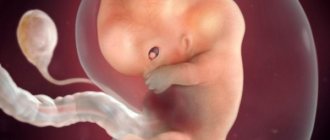When pregnancy occurs, a couple who is expecting a child has a number of questions. One of them is whether it is possible to have sex, and how to do it so as not to harm the mother and baby.
In fact, everyone's situation is individual. Ban or approval largely depends on the health status of the pregnant woman, the duration and course of pregnancy. On these issues, it is necessary, putting aside shame and embarrassment, to consult with your gynecologist.
Does your sex life change during pregnancy?
Certainly.
And these changes are strictly individual. While some women may enjoy their sexuality during pregnancy, others may feel a complete lack of sexual desire throughout the entire 9 months. What matters is how the pregnancy progresses and whether there are any complications that impede a full sexual life. The psychological attitudes of partners regarding sex life during pregnancy also influence. Each trimester has its own characteristics that affect the sex life of the couple.
First trimester
For many women, sexual desire decreases in the first trimester of pregnancy. Malaise, fatigue, drowsiness, nausea, vomiting, engorgement and tenderness of the mammary glands appear, which, of course, does not contribute to an active sexual life.
Second trimester
In the second trimester, the malaise characteristic of early pregnancy disappears. The risk of miscarriage is significantly reduced (most pregnancy losses occur in the first trimester). Most women feel great and look good during this period. Some couples note that their sex life during this period becomes more active than ever.
Third trimester
In the third trimester, there is a significant increase in body weight, heartburn, dyspepsia, and fatigue may appear. Therefore, a woman’s sexual activity decreases. In addition, the presence of an already quite tangible child confuses many couples and creates the presence of “someone else in the room,” which often stops many men.
Advantages
Sexual life during pregnancy helps the expectant mother feel attractive, desired, and feel an emotional connection with her partner. Therefore, having sex during pregnancy has obvious psychological benefits.
In some cases, you should abstain from sexual activity during pregnancy. These include:
- Cases of miscarriage in previous pregnancies (miscarriages, premature births)
- Threat of termination of this pregnancy (for example, increased uterine tone or short cervix)
- Unexplained vaginal bleeding
- Painful sensations during sexual intercourse
- Placenta previa (a condition in which the placenta lies low, covering the cervix)
- Multiple pregnancy (twins, triplets, etc.)
- If you have sexually transmitted infections, it is recommended to use a condom
Check with your doctor because feeling well does not always mean there are no pregnancy complications.
Dangerous stages of pregnancy when you can’t have sex
There are periods when sex is contraindicated for pregnant women:
- The first weeks (until the 10th week)
. It is wise to refuse sex after an ultrasound has confirmed pregnancy. After the tenth week, you can start having sex, but carefully. - Physiological timing of menstruation
. Please note that the risk of miscarriage comes from the physiological days of menstruation. In other words, these are the calendar days when you should have your period. It is on such days that the uterus is most susceptible to opening and contracts easily. - A month before giving birth.
Sperm during unprotected intercourse causes contractions of the uterus, so you need to be extremely careful in the last weeks. Regular and unprotected sex (if the partners do not have STDs) is useful during post-term pregnancy, when stimulation will only be beneficial.
The most favorable time for having sex is the second trimester. The stomach does not bother the woman yet, toxicosis is behind her, and sexual desire seems to cover her with renewed vigor, delivering pleasure to both partners.
Why does discharge appear from the mammary glands during sexual intercourse?
During pregnancy, the mammary gland prepares for feeding the baby in advance; from about the third month of pregnancy, the production of colostrum (a thick yellowish liquid) begins.
During sexual arousal, the hormone oxytocin is released. This is the same hormone that is released when you breastfeed your baby. The “love hormone,” which is responsible for sexual desire, also ensures milk production. Therefore, it is natural that a small amount of colostrum may be released during sexual intercourse.
Main question
So, is it possible to have sex during pregnancy? Yes, if you feel well and the pregnancy is progressing normally, then you can have sex from the very beginning until the birth. And some sources recommend continuing during these times! This recipe is recommended for improving the quality of cervical dilatation during childbirth - as an alternative to medications. Of course, for such an extreme method of childbirth you need to have the appropriate character and receive special psychological training...
Of course, an orgasm - if there is little time left before childbirth - can serve as an impetus for its onset. (Intercourse immediately before childbirth will all the more cause or intensify contractions.) But if the birth canal, especially the cervix, is not ready for childbirth, and the baby is not yet ripe, then contractions of the uterus during orgasm cannot cause labor (i.e. premature birth).
Parents' sexual relations do not harm the unborn child. The baby is protected by the thick muscular wall of the uterus, the amniotic sac, and the mucus plug that literally plugs the cervix. And although you may feel movement immediately after orgasm, it is caused by contractions of the uterus rather than by the baby “knowing” what is happening or feeling pain. And the pleasure that the expectant mother receives has a positive effect on the child.
When can you start having sex after childbirth?
The postpartum period lasts 6 weeks. This is a very important period for a woman, when the body gradually returns to its non-pregnant state. Therefore, during this period, it is best to abstain from sexual activity, especially if you had a cesarean section or episiotomy.
Pregnancy is not a disease, so the couple can enjoy an active and fulfilling sex life. In most cases, sex during pregnancy is safe.
What else should pregnant women not do?
Sonali Shivlani, an internationally certified pregnancy, lactation and infant nutrition consultant, lists what expectant mothers should not do during the nine months:
- Drink alcohol during pregnancy. Drinking alcohol by the expectant mother, even in small quantities, can lead to birth defects and mental retardation in the child. Alcohol has a negative effect on the fetus up to the development of fetal alcohol syndrome, which leads to severe deviations in psychophysical development, including prenatal and postnatal growth retardation.
- Smoking. Smoking causes fetal hypoxia, negatively affects the formation of its organs, and increases the risk of birth defects. One study suggests that maternal smoking can lead to early puberty in boys and significantly increases the chances of drug addiction in girls.
- Use drugs. Drugs cause serious harm to the unborn child.
- Visit the bathhouse and sauna. During pregnancy, you should not take a hot bath. Excessive heat exposure, especially during the first trimester, increases the risk of neural tube defects in the fetus.
- Exercising too intensely. Moderate physical activity is encouraged during pregnancy, but exercise that causes the expectant mother's heart rate to exceed 160 beats per minute can cause fetal hypoxia. In the later stages, when doing gymnastics, another limitation appears - raising your arms up. Why is it not recommended to raise your arms up in the second half of pregnancy? It is believed that a sudden raising of the arms can provoke a change in the position of the fetus. This postulate has not been scientifically proven, but it is better not to risk it.
- Stay in a standing position for a long time. This can lead to varicose veins of the lower extremities and swelling of the legs. Read more about varicose veins on our website Dobrobut.com. It is advisable for pregnant women to rest more often in sitting and lying positions.
- Be nervous. Stress has a negative impact on the health of mother and fetus. Studies have shown that the condition of future children depends on the emotional state of the mother. Prenatal stress can affect the mental development and even the future life of the child.
Although pregnancy is a physiological state of the body, it requires the expectant mother to comply with a number of restrictions necessary in order not to harm both her health and the unborn child.
Related services: Ultrasound examination Consultation with an obstetrician-gynecologist during pregnancy
A cunning precaution
It is quite normal for a pregnant woman to feel contractions and contractions of the uterus during orgasm. Such contractions can last about half an hour, or even longer. This happens for a number of reasons: due to extra blood flow to their genitals; due to the presence of prostaglandins (they act as a vasodilator) in male sperm. Sometimes contractions can be caused by great emotional stress. Some experts believe that such contractions help a pregnant woman maintain muscle tone of the uterus. One way or another, if these contractions begin to give the woman discomfort, use a condom. And see if this situation changes in a couple of weeks. Another way that can help a woman endure contractions more easily is by massaging her back or feet.
Women whose sex drive decreases during pregnancy may experience an increased need for affection and tenderness from the child's future father. These caresses and tenderness can lead him to a state of strong sexual arousal. To help the father-to-be cope with these difficulties, his pregnant partner should lie next to him and caress his thighs, testicles and breasts, while at the same time allowing him to masturbate and bring himself to orgasm.
Is it possible to masturbate during pregnancy?
Self-pleasure is a great way to relieve sexual tension that increases while expecting a baby. In some cases, masturbation is preferable to intercourse. It is recommended if:
- during sex, a woman feels pain and discomfort;
- one of the partners has an STD;
- a growing belly interferes with full intimate intercourse.
In addition, self-pleasure makes it easier to achieve orgasm, which has a positive effect.
In the early stages, stimulation of the clitoris is undesirable, as this can lead to hypertonicity of the uterus. It is recommended to act on the labia.
Masturbation is dangerous when:
- there is a threat of miscarriage, bleeding is observed;
- uterine tone is increased;
- After orgasm, a woman feels strong tension and hardening in her abdomen.
In later stages, self-satisfaction can provoke early labor. Therefore, starting from the 36th week, it should be abandoned.
Sex positions depending on trimester
Simultaneously with changes inside the body, a woman’s appearance also changes. The expectant mother, especially if this is her first pregnancy, will have to learn to live with her new body. As you might guess, this process involves not only updating your wardrobe, but also sexual poses.
An interesting position does not always impose restrictions on such a natural thing as sex. If there is one potentially dangerous position in this case, it is missionary. However, there are much more permitted positions for pregnant women to have sex.
The following positions are equally safe for sex during pregnancy. Exceptions are the individual characteristics of the structure or preferences of the couple.
- On the side.
- Reverse cowgirl.
- Near the wall.
Experts say that choosing a position for sex during pregnancy should be based solely on your own feelings. In general, neither the penis nor the movements performed can harm the child.










